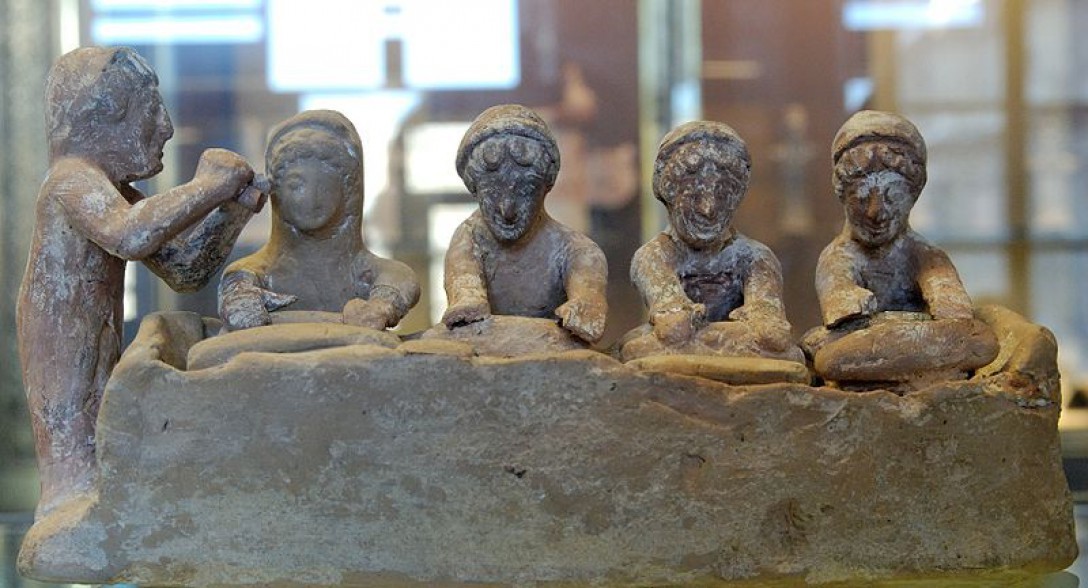The Byzantine celebration of Christmas attracted the attention of the Arab Harun ibn Yahya, who had been captured by the Byzantines in 911/12. Leo VI, the Wise, had already introduced an innovation according to which muslim prisoners were invited to the official banquets during the Christmas and Easter ceremonies and other court events, possibly to replace the missing ambassadors.*
Harun left us a description of a Christmas banquet with the Byzantine emperor.
 |
 |
|
|
Harun didn’t described the food. Such description was apparently viewed as inappropriate.
But, Theodoros Prodromos, writer of the 12th century, well know for his prose and poetry, mentions Christmas in his verses. December: I hunt hares, enjoyment from the wild; I fill my dish with tasty partridges, and I celebrate the Feast of Nativity, which is the greatest feast of the Word of God. Avoid taking generous amounts of foods, I say, and reject the melancholy cabbage.” ( Verses on Dietary Rules, Ideler 1841, v.1, p.420)
According to the dietary calendar attributed to a certain sophist Hierophilos, Byzantines should follow those recommendations: December~ During this month do not eat cabbage or water mint. Meats as for November, similarly with fish and vegetables and fruits and wine and pulses and leek broth… Do no eat lentils. Take fenugreek soup in moderate amount. Do not eat caper and green olives in brine (kolymvades); eat black olives in honey vinegar and sinapis…. (ibid, p. 417)
Hierophilos recommends the following food in December:
Deer, beef, hare, male goat, wild boar, wild goats, gazelle and all game birds; lean meat, double cooked, hot and spicy, and suckling animals.
Eat any fish except the wet ones; do not eat rainbow wrasse and gugdeon. Use pungent flavours, such as pepper, leeks and mallow. Avoid broad beans, lentil and lupins. Among fruits don’t eat dates and bay berries; eat the rest of fruits. Drink old and flavorful wine.
Now, you can imagine what the emperor might have eaten….
*Liliand Simeonova, In the depths of tenth-century byzantine ceremonial: the treatment of Arab prisoners of war at imperial banquets, BMGS 22 (1998), 75-104.


Pingback: Christmas dinner at the Great Palace – History of Greek Food